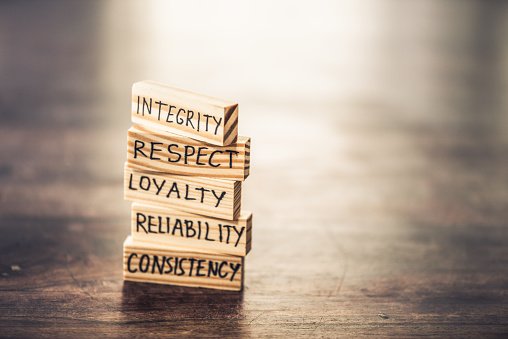Self Esteem

During a therapy session you have the space to talk about your emotions and stressors, confront your problems, and be provided with helpful feedback to support positive changes. The time spent in a therapy session can feel empowering, but this is only a small portion of your week. There are 168 hours in a week, less than one of those hours are spent in therapy. A common misconception is that attending your weekly therapy sessions is all that is needed, but the time in between therapy sessions also holds an important space to continue to progress. So the real question is, what do you do in the time in between therapy sessions? While there is not an exact science or formula that is guaranteed to work, the following are helpful tips and ideas to help you in between sessions.

Symptoms of anxiety consist of both physical and mental symptoms, which oftentimes can feel incredibly overwhelming and difficult to manage in the moment. While there are many different techniques and tricks to combat these symptoms, a helpful group of skills fall under grounding techniques. Grounding techniques work to bring awareness to the present moment and what is happening in the world around you. These help to distract from anxious thoughts and symptoms. In bringing awareness to the present moment, it can provide feelings of safety and create a space between you and your feelings of anxiety. Grounding techniques can include both physical and mental techniques to provide distractions. The following are examples of grounding techniques that you can begin to use and practice.

This may seem like a silly title. How can a person do anything but value what they identify as valuable to themselves? It is true that many people make time, and commit energy, to the things they hold in the highest regard such as family, relationships, success, education, etc. However, like so many things, this can become an unconscious endeavor and your values can easily fall away from your focus as you find yourself building different routines. If one is neglecting their values, they may be unconsciously reinforcing depression, anxiety, grief, or anger. So how do we interact with our values in such a way that our lives and goals feel effective and meaningful?

Being mindful is about remaining in the present moment and being aware of your current surroundings, thoughts, emotions and feelings. It is a practice often used in Dialectical Behavioral Therapy but also across different types of therapies. Read on for ways that mindfulness can support your overall wellbeing, particularly when it comes to managing stress.

Do you ever realize some conversations that you walk away from end on a positive note, where others can feel daunting and discouraging? To break this down, everyone has a unique way in which they communicate and express themselves to others. It is important to be aware of how you communicate with others because it can make it easier in navigating conversations. These habits impact how others perceive you and your needs. There are four basic types of communication styles, all of which can promote different outcomes of a conversation.

When one is feeling depressed and anxious, the G.L.A.D. technique is a grounding skill one can use to be more mindful in the moment and to experience positive distraction until strong negative emotions pass, as to reduce the possibility of impulsive reactions as impulsive reactions may not be an effective response in the moment. Try this practice out daily in order to notice positive shifts daily.

I don’t know about you, but sometimes throughout my day, I have a moment where I stop and think about what it is I am doing because part of me does not remember making the decision to do it in the first place. Some of these behaviors or actions I find myself doing are productive, some are neutral, and some are ones that I wish I didn’t do as much, especially without thinking about it. According to the Journal of Personality and Social Psychology, about 43% of what most people do every day is out of habit (Journal of Personality and Social Psychology, Vol. 83, No. 6, 2002). This is almost half of your daily life decided for you based on routine. Once again, if you are anything like me, there are parts of that 43% that I would rather be different, so here are some tips to better understand how habits work.

Having challenges with your quality of life can come from many sources. When you take what happens to you and combine it with your reactions (thoughts, feelings, beliefs, choices, etc.) you get the formula for your quality of life. Most of what happens to us lies outside of our control, which can influence thoughts and feelings we often feel initially, in new situations. However, it is important to understand that the subsequent thoughts and feelings we have, and the beliefs they form, are very influential on our overall quality of life. It is here that a skill referred to as Loving Kindness was developed from eastern meditative practices as a way of reducing stress-reinforcing beliefs and improving overall quality of life.

Flourishing is a term within the field of positive psychology that focuses on a multi-dimensional, complex approach to what true wellbeing and happiness look like. There are a lot of factors that make up flourishing, from personal development, self-love, self-awareness, financial freedom, and more. You might experience flourishing when you are trying new things, exploring a new hobby, and spending time with loved ones. Flourishing isn’t just one of these areas, it’s focusing on all of these pieces of the puzzle; a complete picture of wellbeing and happiness.

We know we all need to engage in self-care. It makes us feel good, it helps us destress, and we know that there are long-term benefits for our mental and physical health. However, in difficult moments, it’s often difficult for our brains to remember all the self-care activities we know as our nervous systems take over and attempt to fight or flee. Thus, developing a self-care toolkit for any moment can be helpful. By having these on hand, you can use them anytime you feel stress or need something to help you regroup.